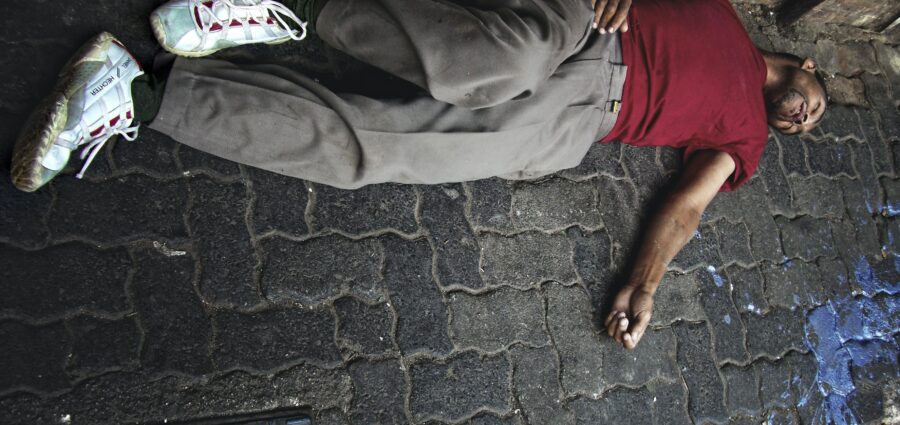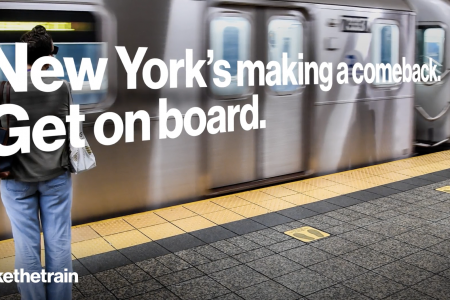Assemblymember Linda B. Rosenthal (D/WF-Manhattan), Chair of the Committee on Alcoholism and Drug Abuse, held a hearing, in which it was revealed that the people with substance use disorder have been deeply affected by the colliding crises of CoViD-19 and addiction, with Assemblymember Richard Gottfried, Chair of the Committee on Health about the impacts that the CoViD-19 pandemic has had on addiction and overdose rates and alcohol and drug treatment services statewide.
“New York State was already in the midst of an addiction and overdose crisis. CoViD-19 made it worse, particularly for communities of color, low-income individuals and essential workers, who continue to be disproportionately impacted by CoViD-19,” said Assemblymember Linda B. Rosenthal. “Addiction treatment providers have been starved for resources for years. CoViD-19 has made it impossible for these providers to meet the increased need for supportive services. We are facing colliding crises and the State’s clear failure to prioritize addiction prevention will be measured in lives lost.”
According to a recent report from the Centers for Disease Control and Prevention, as of June 2020, 40 percent of adults reported that they were struggling with mental health or substance use issues or both. Young people, people of color, low-income people and essential workers are over-represented among these vulnerable populations.
“It is not an accident that the population most vulnerable to CoViD-19 is also the population most likely to need supportive services. It is the result of institutional inequalities in our public health system and elsewhere in our society that make communities of color and low income communities more vulnerable to the twin illnesses of addiction and CoViD-19 and systems less likely to respond to those vulnerabilities,” said Assemblymember Linda B. Rosenthal.
The Commissioner of the New York State Office of Addiction Supports and Services (OASAS) presented testimony, while New York State Department of Health, the agency legally responsibility for tracking and reporting overdose and other health incomes, refused to appear or send prewritten testimony.
“It is deeply disappointing that New York State Department of Health failed to attend today’s hearing; the DOH has not published county-level overdose rates since January 2020, and those numbers only cover June 2019. You cannot manage a crisis you cannot measure, and DOH and county-level officials have been able to report daily demographic and other CoViD-related data. If DOH prioritized addiction and overdose in the same way as it did any other disease, it would update the overdose numbers and it would have shown up,” said Assemblymember Linda B. Rosenthal.
Even in the absence of state-level overdose reporting, some counties have reported up to a 40% increase in overdoses. In August, Rensselaer County reported a 41% increase over 2019 in overdose rates. Ulster County reported seeing overdose deaths triple. Both Columbia and Erie Counties are seeing a surge in overdose deaths. Nearby Vermont reported a 50% increase in fatal overdoses this year.
We now have clear evidence that CoViD-19 has the ability to erase any progress we have made reducing overdose deaths. Yet, despite these county-level reports, and reports that overdose has increased nationally by 18%, the State is reducing funding for addiction providers by 20%, which could be a death blow to providers and the communities they serve.
In addition to problems with overdose reporting and addiction data, the hearing also revealed that many treatment providers did not receive personal protective equipment (PPE) for weeks and months, underscoring a sense that addiction treatment providers were and continue to be classified as inessential, unlike other healthcare workers.
A quarter of all hospital-based addiction treatment facilities closed during the height of the surge to accommodate the influx of CoViD-19 patients, but no plans were made to bring additional capacity online elsewhere or to refer patients in the community to other treatment. In fact, neither OASAS nor the DOH were aware that any hospital-based facilities closed. Despite repeated requests to both agencies in multiple forums and forums over the course of months, neither agency could provider Assembly Rosenthal with any information regarding program closures, so Assemblymember Rosenthal’s staff contacted every provider statewide.
“As overdose rates continue to rise in many communities across the state, our lawmakers must prioritize the needs of New Yorkers with substance use disorder/addiction challenges and the providers who serve them. In reality, our system of care is faced with 3 simultaneous public health epidemics with CoViD-19, the Opioid and increased rates of suicide completion bearing down on our communities. We are grateful to Assemblywoman Linda B. Rosenthal and Assemblyman Richard Gottfried for their leadership and willingness to help us call attention to the plight of the individuals we serve and for allowing us to make recommendations as to how New York can get its’ arms around these devastating public heath crises,” said Lauri Cole, Executive Director of the NYS Council for Community Behavioral Healthcare.
“CoViD-19 has made the ongoing overdose crisis in New York even worse, putting people who use drugs and vital harm reduction services in jeopardy across the state. Life-saving services are harder to access and multiple risk factors have skyrocketed, vastly increasing the danger for fatal overdose. Overdose deaths are already increasing from the crisis-level that New York was experiencing even prior to the pandemic. This is a moment for New York State to provide more harm reduction services – not fewer – and we welcome the Assembly hearing to identify actions New York State must take to address the dual crises of the CoViD-19 pandemic and the disaster of increasing fatal overdoses across the state,” said Melissa Moore, New York State Director, Drug Policy Alliance.
“The recovery community is resilient by way of necessity and we have shown our resilience day in and day out through this Pandemic,” said Friends of Recovery – New York Executive Director Dr. Angelia Smith-Wilson. “Peers have found new ways to help one another maintain their recovery even during these difficult times. We immediately looked for ways people could safely access Medication Assisted Treatment, we supported one another in accessing services virtually, and we have reached out to make sure no one feels alone. But the reality is, that people are feeling isolated. We thank OASAS Commissioner Arlene González-Sánchez as well as our legislative partners, especially Assemblywoman Linda Rosenthal and Senator Pete Harckham for doing all they can so that no one falls through the cracks. We look forward to this hearing as an opportunity for the recovery community to have their voices heard regarding the challenges and successes and to be partners in developing solutions.”
“CoViD has highlighted and exacerbated the cracks in our behavioral health infrastructure. Our patients are now facing even more barriers to treatment. With support from New York State, we can increase access to care, improve treatment and make recovery possible,” said Megan Landreth, Legal Counsel and Director of Government Relations of Horizon Health Services.
John Coppola, Executive Director of the New York Association of Alcoholism & Substance Abuse Providers (ASAP) said, “While substance use disorders and other “deaths of despair,” including overdose and suicide, are rising across New York State, programs and services that could help address these issues are being cut. Consequently, essential workers on the frontlines of dual pandemics – CoViD-19 and the addiction crisis – are being furloughed or let go, instead of receiving support when communities need them most.
The failure to support addiction services is emblematic of poor decision making – stepping over dollars to pick up pennies – and moving New York in the wrong direction. Assemblymembers Gottfried and Rosenthal deserve enormous credit for bringing attention to the impact CoViD-19 is having on people with SUD and the essential workers who care for them. Our hope is that this hearing spurs immediate action to support – not make cuts to – addiction services, to pass important legislation, and most importantly, provide assistance to vulnerable New Yorkers and their families who need help now.”
Allegra Schorr, President of The Coalition of Medication-Assisted Treatment Providers and Advocates of New York State (COMPA), stated, “The coronavirus pandemic has collided with our existing opioid crisis in a lethal way, not only exposing weaknesses in response and funding for effective treatment, such as Medication-Assisted Treatment (MAT), but worsening them. We have a situation where, instead of bolstering the opioid crisis response to keep emergency rooms as clear as possible, we are seeing cutbacks, and in one case, a major New York City treatment center has been forced to close for financial reasons, leaving over 1,500 patients with their lifesaving treatment disrupted. In an era of sharply reduced funds and increased overdose deaths, we must now laser-focus on the modality we know to be effective in treating opioid use disorder, which is MAT.”
“By all accounts across this country and in New York State, CoViD-19 is worsening harms faced by the most vulnerable populations, including my patients who are people who use drugs. We need to stop cutting funds for essential services including harm reduction. Physical isolation is dramatically increasing risk for fatal overdose, especially if people use alone without access to naloxone. We are at risk for increased HIV, Hepatitis C and infectious disease clusters if people do not have access to essential harm reduction supplies. New York State must fully fund and implement harm reduction and low barrier treatment services, prioritizing medication for opioid use disorder, mental health supports, housing, and provide people with the material supports like phones and food that they need to survive this CoViD-19 pandemic,” said Kimberly Sue, MD, PhD, Medical Director at Harm Reduction Coalition.
“Not only have communities of color and people with substance abuse disorders experienced disproportionately higher covid-19 infection rates during the pandemic, decades of social dislocation and racial discrimination continue to place vulnerable populations at greater risk,” said Lawrence S. Brown, Jr., MD, MPH, FACP, DFASAM, CEO of START Treatment & Recovery Centers, which has treated over 50,000 New Yorkers throughout Brooklyn and Manhattan since it was founded in 1969. “Interruptions in treatment related to the pandemic also placed patients at a greater risk for relapse and engagement in behaviors that endanger others. The pandemic also revealed longstanding limitations in healthcare delivery systems for public health, primary care, and mental health services. Going forward, behavioral health must be viewed and treated as an essential health service with access to the same resources and support afforded to other sectors of the health care field.”
Assemblymember Linda B. Rosenthal is the Chair of the Assembly Committee on Alcoholism and Drug Abuse. She represents the 67th Assembly district, which includes the Upper West Side and Hell’s Kitchen in Manhattan.








